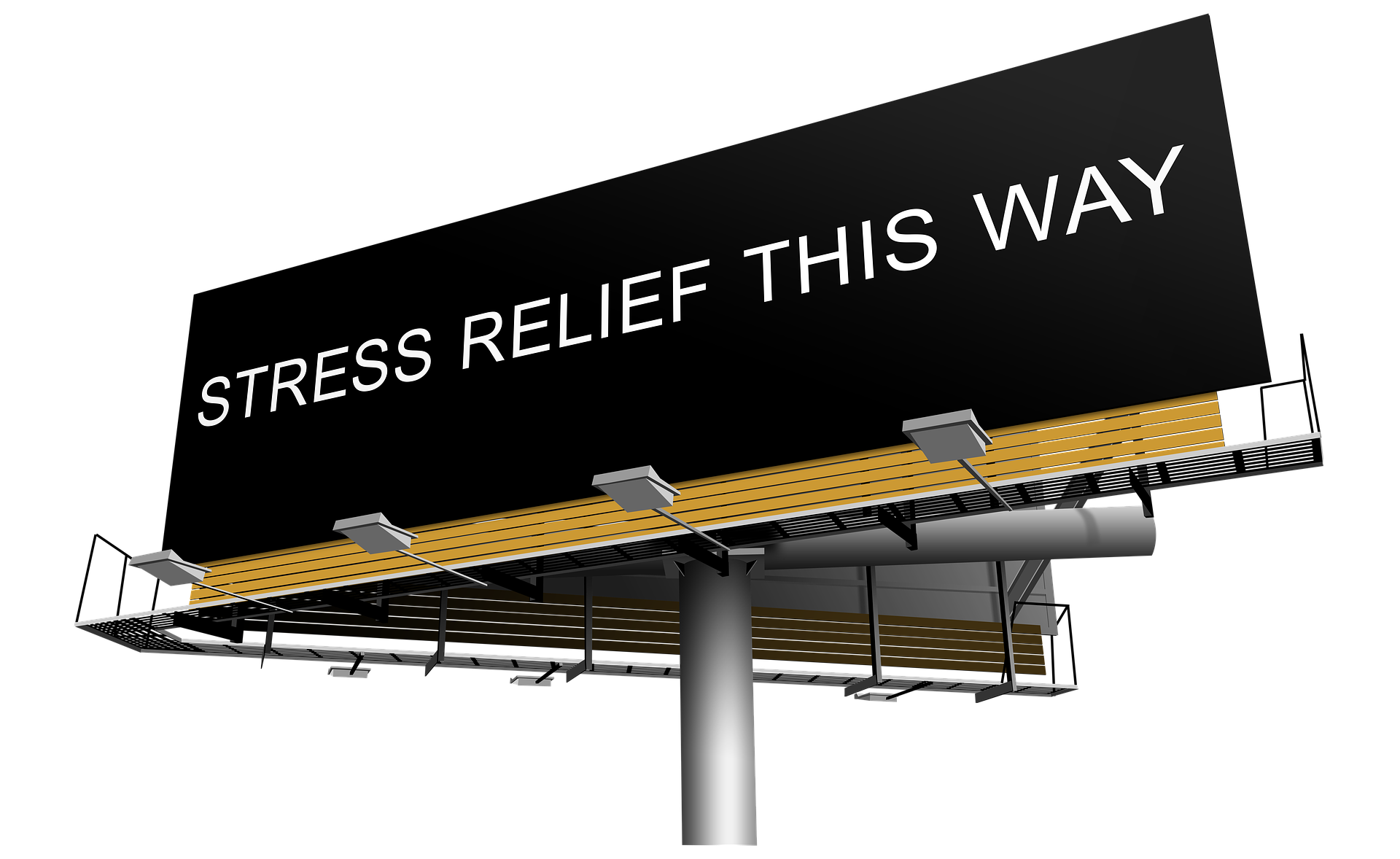The Present
5/12/2022 12:00:00 AM

On a day when I felt demoralized by the difficulties in my life, one of my nursing colleagues helped me with this story of two old women who shared a nursing home room.
Marian was so weak, she was only able to sit up in bed for brief periods each day; Dorothy was almost immobilized with arthritis. Despite pain and disabled bodies, these women had lively spirits and enjoyed talking with each other. They reminisced about vacations and jobs; being married and raising children; holidays and birthdays; beautiful gardens and favorite recipes.
Marian’s bed was near the window. Whenever she could sit up, she’d pass the time describing all that she saw through the window. Dorothy loved those times when Marian lit up her life by describing the world outside. There was a park with a hill in the distance, paths that wound up-hill, bordered with flower gardens and trees. With each season the flowers changed from spring tulips, to summer daisies and in the fall, to brightly colored mums and trees with scarlet and golden leaves. The park had swings and slides where children played, benches where parents rested a moment, while watching over their active children. Sometimes there were lovers who kissed. On Memorial Day a parade passed by, complete with floats, marching bands and veterans in World War II uniforms, like their husbands used to wear.
Each time Marian described the spectacle and beauty beyond her window, Dorothy closed her eyes. She imagined the splendor in great detail and savored the sights she could see only in her mind’s eye.
Last Thursday, Marian died in her sleep. Not only had Marian passed away, but so had her eyes on the world. Dorothy asked the nurse to be switched into Marian’s bed. When getting settled, she turned to the window and saw for herself, for the first time. Beyond the curtains was a blank wall!
Confronting the wall and the loss of her friend was too much; Dorothy broke down and cried. How could this be? How could Marian have described such magnificent sights and sound while looking at…nothing?
The wise nurse replied, “Maybe she found joy by helping you feel happy and forget your pain for a while. When we care about others we share their joys and sorrows. When shared, burdens and sadness are cut in half. But when joy is shared, it’s multiplied many times over.”
If you want to feel joy, reach out and share in someone’s joys and sorrows; your presence is a gift to them. Joy will also rise when you practice gratitude for all your blessings. Do yourself a favor; be grateful for today because today is a gift. That’s why it’s called “The Present.”
Your presence and gratitude are gifts to both you and others in your life. Savor these gifts as one very effective way to take good care of yourself as you care for others…Jane
Direct Link: https://www.help4cgs.com/Blog.aspx?ID=1&PostID=6
6 Stress-Busting Strategies for Caregivers
5/4/2022 12:00:00 AM

Although it’s important and often gratifying, caring for others is stressful. Over time, it can take a toll on body and mind, heart and soul; on personal finances, family relationships and work life. It can erode your immune system and increase susceptibility to disease, depression or hospitalization.
Like other caregivers who are coping with stress, you most likely try to keep your life in balance and do things to take care of yourself. What are the ways you usually handle stress? There are lots of sensible self-care practices that work. If you’re looking for some reliable and effective strategies, try some of these 6 stress-busters:
Care for yourself as you care for others: “Put your oxygen mask on first, before trying to help others.” We’ve all heard this good advice but we often overlook it. We prioritize others’ needs, deny, diminish, or postpone addressing our own needs. This is a prescription for exhaustion! Self-care starts with adopting a mindset that admits our needs and acknowledges self-care as a wellness strategy. It’s not selfish! We can’t help if we can’t function!
Avoid stress numbing behaviors: Smoking, drinking, eating junk food or over-eating, excessive shopping, TV or Internet use briefly decrease the discomfort of stress. They don’t solve problems and can create new ones. Look for healthy pleasures instead.
Acknowledge that you’re human, not a caregiving machine: More like an ecosystem than a computer, you don’t plug into an electrical socket to access continuous, uninterrupted energy. No, you run on living energy that comes from within and cycles through periods of high and low vitality. Take a break when you’re tired. Build respite into your regular routine; a few minutes; an hour, an evening, a weekend or longer time away…whatever it takes to refresh and keep you well.
Conserve your energy: Don’t squander this valuable resource. Define what’s important and what’s not. Let go of what’s unimportant. Stay away from toxic people or situations that upset or drain you. Seek out those who empower and build your confidence. Pace yourself.
Replenish your energy: Breathe deeply, for at least three minutes every day to lower your heart rate, anxiety and muscle tension. Regular deep breathing seems simple, but it really works! Clear your mind of worry with things like meditation, prayer, journaling, craft work, or communing with nature. Put “rest time” on your to-do list.
Cultivate community: Connect with others in conversation and enjoyable activities. Reach out when feeling lonely. Don’t always try to do things yourself. Ask reliable, concerned friends and family to lend a hand. Avoid people who make you feel guilty for needing help, those who can’t or won’t deliver. Graciously accept what’s offered. Say, “Thank you.”
What about you?
To stay healthy and manage the stress of caregiving, incorporate these six strategies into your life. Whatever you do to relieve your stress will benefit both you and your care receiver. As you do so much for others, remember to take good care of yourself, too…Jane
Direct Link: https://www.help4cgs.com/Blog.aspx?ID=1&PostID=5
Tired Caregivers, Pick Up That Penny!
4/27/2022 12:00:00 AM

Does it seem like you’re taking care of others all the time? During one point on my caregiving journey, it felt like I was: my Mom losing her vitality and memory to Parkinson’s-related dementia, Dad living through lung cancer and blindness; my husband suffering chronic pain; my mother-in-law half paralyzed, post-stroke. I had a very active four-year-old son and lived in a house that polite people called “a fixer-upper.” Plus, I was working full time. The stress was intense; I struggled to find relief. Then my dream taught me how.
In the dream, it was dark and cold. I was walking with my head down, leaning into the blustery, bitter wind. Something in the gutter caught my eye. I bent to see what it was and found a shiny penny. In my mind I heard, “Find a penny pick it up and all day long you’ll have good luck.” To my surprise, I then found more coins among the decaying leaves: nickels, dimes, and quarters! Feeling great joy, I then abruptly awoke. Lying in bed, the joy lingered and I wondered what this dream could possibly mean.
The following evening a remarkable thing happened during my nightly walk. Deep in thought with my head down, something caught my eye. What do you think it was? Yes, there among the leaves and dirt in the road near my house was a real penny! Returning home, I smiled and felt happy, like after my dream.
Amazingly, on the next five walks I found four more coins in the road, and they each filled me with an inexplicable delight. I saved them on the kitchen windowsill, trying to hold onto the good feeling and to understand what was happening.
Being happy about pennies made no logical sense, yet every time I found one I felt reassured by a little surge of energy. I am a person of faith, so to me, God’s voice of wisdom and love was revealing a deep, encouraging truth. In my heart I heard these words:
“In this time of “constant caregiving” there’s love and support amidst the rubble in your life; just look closely. Seek and you’ll find help in places you might overlook. It may seem as insignificant as a penny but accept and receive. Pick up even the slightest bits of love and help that come your way. Be grateful for even very small things; they can make a difference if you let them. No matter what the circumstances of your life, take heart. After night the morning always dawns. This journey is long and arduous, but this too shall pass.”
What about you?
Does this phase of your caregiving journey seem difficult or dark? If so, remember this. One powerful way to handle the adversity is to look for some “pennies” of you own. Whatever you do to recognize, receive, and give thanks for the goodness in life will be good for both you and your loved ones. As you do so much for others, remember to take good care of yourself, too…Jane
Watch my recording of this story on YouTube
Direct Link: https://www.help4cgs.com/Blog.aspx?ID=1&PostID=4
3 Ways to Relieve Caregiver Burden
4/22/2022 12:00:00 AM
 In my preceding post, I shared a link to the Burden Scale for Family Caregivers-Short version (BSFC-s), an evidence-based tool that shows how caregiving impacts the health of a caregiver. A low score indicates no increased risk for impaired health, which is very good news. However, higher scores warn of increased health risks due to caregiving.
In my preceding post, I shared a link to the Burden Scale for Family Caregivers-Short version (BSFC-s), an evidence-based tool that shows how caregiving impacts the health of a caregiver. A low score indicates no increased risk for impaired health, which is very good news. However, higher scores warn of increased health risks due to caregiving.
When others depend on your care and quitting isn’t an option, preventing depletion is job number one. Finding relief is the next crucial step if you’re already stressed by caregiving. Use these three tips to help prevent and provide relief for caregiver burden.
Pay attention to stress warning signs
You can complete the BSFC-s as one way to evaluate your level of strain. Another way is to simply pay attention to your own physical and emotional stress symptoms, and to listen to feedback from family or friends. Over time, little stresses and strains add up. Heeding the stress warnings is a vitally important way to avoid becoming ill and unable to function. A story that circulates on the web, author unknown, vividly illustrates this point.
When presenting a stress management class, the teacher raises a glass of water. Everyone expects to be asked the ultimate question, “Half-empty or half-full?” But she fools them all by instead asking, “How heavy is this glass of water?”
Answers from the students range from 8 ounces to 20 ounces.
With a knowing smile, the teacher replies, “The weight doesn’t matter. Its heaviness depends on the length of time I try to hold it.”
“If I hold it for a minute, that’s no problem; it will feel light. If I hold it for an hour, it will seem very heavy and that’s a problem. My arm will really hurt. If I try to hold it for a day, it will become too much to hold and that’s a disaster! I’ll need an ambulance! In each case, it’s the same weight, but the longer I hold it, the heavier it becomes.”
— Unknown
That’s the way it is with caregiver burden. If you give what seems like a manageable amount of care for too long without a break, the load grows increasingly heavy. If you ignore the stress warning signs and continue on without resting, your body and mind will hurt. Sooner or later the little load will become more than you can bear; no matter how much you want to, you won’t be able to carry on. Look, listen, and respond to the signs that you are carrying too much for too long.
Take a break
Like that glass of water, periodically you have to lay down your caregiving responsibilities and take time for respite. It’s the only way to refresh your energy and retain your strength for the long-term commitment of caregiving. You aren’t a caregiving machine that plugs into an electrical socket for energy. Your human energy is organic; it comes from within. It ebbs and flows; you are the one who must replenished it when your energy is spent. Whether short or long, taking any type of a respite break will allow you to recharge.
Do something “nice” for yourself every day
Respite is just one example of healthy self-care but there are many others. They include anything that takes care of your needs, not just those of others...anything that is enjoyable or pleasant, that brings you joy, peace, or inner calm. Small acts, when practiced daily, add up. They refill your depleted energy and relieve your sense of stress and burden. So take a deep breath when tense, enjoy a beautiful sunset, or listen to enjoyable music. These cost nothing but are valuable sources of healthy energy.
Do you hear “stress warning” signals? Could you use a break to restore your energy? What enjoyable or pleasant thing will you do today? Build energizing experiences, people, pastimes and habits into your day-to-day life. No matter how small, these investments in self-care will be good for both you and your loved ones.
As you do so much for others, remember to take good care of yourself, too…Jane
Direct Link: https://www.help4cgs.com/Blog.aspx?ID=1&PostID=3
Am I “at-risk” because of caregiver burden?
4/12/2022 12:00:00 AM

Caring for a family member or friend can be tremendously fulfilling. It can bring you closer together and fill your heart with love. Yet, caring can also take a toll on your physical and mental health; on finances, personal relationships and work-life.
The stress caregivers experience is often long-term, uncontrollable and unpredictable and can lead to caregiver burden…a negative perspective on caregiving that comes from giving for too long without taking time to replenish your energy. Due to depleted physical and emotional well-being, half of caregivers report moderate to high levels of caregiver burden.
You’ll know you have caregiver burden if you feel:
A loss of privacy or time for yourself
Stressed by juggling caregiving and other responsibilities
Angry or strained when around the one receiving your care
Unsure about what to do about the person in your care
Guilty about not doing enough, or not doing well enough as a caregiver
Your social life or relationships with family or friends have suffered
Your physical or emotional health has suffered
You’ve lost control of your life
As these feelings become more intense and persistent, your level of burden and the risk to your health grows. Protect your well-being. You can find out if your health is “at-risk” because of caregiving; with the evidence-based, Burden Scale for Family Caregivers-Short version (BSFC-s).
In my next post, I will share some tips on what you can do about caregiver burden. Until then, remember to take good care of yourself…Jane
Direct Link: https://www.help4cgs.com/Blog.aspx?ID=1&PostID=2